EWIC: International Advisory Board
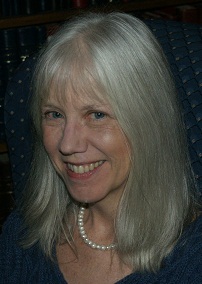
Marilyn Booth holds the Iraq Chair in Arabic and Islamic Studies at the University of Edinburgh, where she is head of Islamic and Middle Eastern Studies and Director of the Centre for the Advanced Study of the Arab World (CASAW). She was Associate Professor, Program in Comparative and World Literature, University of Illinois at Urbana-Champaign, 2004-2008, and Director of the Center for South Asian and Middle Eastern Studies. She had taught previously at Brown University and American University in Cairo. She earned her DPhil at University of Oxford (St Antony’s College). She is on the editorial board of the Journal of Middle East Women’s Studies and served as Book Review Editor for the Journal of Women’s History, 2004-10. She is a Trustee, British Council for Research in the Levant and has been on the Board of MESA as well as other organizations. She is a panel member on the UK Research Excellence Framework 2014, has served as a Mentor for the British Centre for Literary Translation, is an Advisory Board Member, American University in Cairo Center for Translation Studies, and has served on the judging committee for several translation prizes as well as the Albert Hourani Book Prize (twice). She has held postdoctoral research fellowships from Mellon, Fulbright, American Research Center in Egypt, NEH, and ACLS as well as the Joanna Randall‑McIver Junior Research Fellowship at Oxford (St. Hugh's College, 1983‑85). She is an active literary translator, having published 13 translations of novels, short story collections and memoir, some of which have been prize-winning. She is currently writing two books, a monograph on Zaynab Fawwaz (c1850-1914) as a multifaceted commentator on the politics of gender and nation in late-nineteenth-century Egypt, and a monograph on autobiographical practices amongst Arab women, 1880s-1930s.
Booth’s areas of research interest include early feminisms and nationalist/Islamic discourses in the Arab world, Iran, and Turkey; the emergence of Arabic fiction in the 19th century and its relation to gender activisms as well as, more generally, feminisms and Arabic fiction; auto/biography in the Middle East/North Africa; literature and politics of Arabic colloquials; literary translation—theory and practice; the history of Arabic periodicals, especially the satirical press and the women’s press; visual and written caricature in Arabic periodicals; and book and publishing history, the formation of readerships and discourses on reading. Avocations include spinning (and cleaning fleeces), knitting, cycling, walking and reading.
Selected research publications:
- Harem Histories: Envisioning Places and Living Spaces. Durham and London: Duke University Press, 2010. (editor and contributor)
- May Her Likes Be Multiplied: Biography and Gender Politics in Egypt. Berkeley and Los Angeles: University of California Press, 2001.
- Bayram al‑Tunisi'sEgypt: Social Criticism and Narrative Strategies. Exeter: Ithaca Press (St. Antony's Middle East Monographs no. 22), 1990.
- Islamic Politics, Street LiteratureandJohn Stuart Mill: Composing gendered ideals in 1990s Egypt. Feminist Studies, 2013.
- Before Qasim Amin: Writing histories of gender politics in 1890s Egypt. In The Long 1890s in Egypt: Colonial Quiescence, Subterranean Resistance, edited by Marilyn Booth and Anthony Gorman (Edinburgh: Edinburgh University Press, forthcoming 2013).
- Locating women’s autobiographical writing in colonial Egypt. Women’s Autobiography in South Asia and the Middle East: Defining a Genre. Special Issue of the Journal of Women’s History, ed. Marilyn Booth, 2013.
- House asnovel,novelashouse: The global, the intimate, and the terrifying in contemporary Egyptian literature. Journal of Postcolonial Writing 47: 4 (Sept. 2011): 377-90.
- Constructions of Syrian Identity in the Women’s Press in Egypt. In The Origins of Syrian Nationhood: Histories, pioneers and identity, edited by Adel Beshara. London: Routledge, 2011. Pp. 223-52.
- The Muslim Woman as celebrity author and the politics of translating Arabic: Girls of Riyadh go on the road. Journal of Middle East Women’s Studies 6:3 (Fall 2010): 149-82.
- Between the Harem and the Houseboat: Fallenness, Gendered Spaces and the Female National Subject in 1920s Egypt. In Harem Histories: Envisioning Places and Living Spaces, edited by Marilyn Booth. Durham and London: Duke University Press, 2010. Pp. 342-73.
- ’A’isha ‘Ismat bint Isma’il Taymur. Essays in Arabic Literary Biography 1850-1950, edited by Roger Allen. Weisbaden: Harrassowitz Verlag, 2010. Pp. 366-76. Zaynab Fawwaz al-‘Amili. Essays in Arabic Literary Biography 1850-1950, edited by Roger Allen. Weisbaden: Harrassowitz Verlag, 2010. Pp. 93-98.
- Translator v. author (2007): Girls of Riyadh go to New York. Translation Studies 1:2 (July 2008): 197-211.
- Exploding into the Seventies: Ahmad Fu’ad Nigm, Shaykh Imam, and the Aesthetics of a New Youth Politics. Cairo Papers in Social Science. Special Issue: Political and Social Protest in Egypt. 29: 2/3 (Summer/Fall 2006; published Cairo, 2009): 19-44.
- From the Horse’s Rump and the Whorehouse Keyhole: Ventriloquized Memoirs as Political Voice in 1920s Egypt. Maghreb Review 32:2-3 (2007): 233-61.
- Un/safe/ly at Home: Narratives of Sexual Coercion in 1920s Egypt. Gender and History 16:3 (November 2004): 744-68. Violence, Vulnerability and Embodiment, ed. Shani D’Cruze and Anupama Rao.Volume also published as Violence, VulnerabilityandEmbodiment: Gender and History (London: Blackwell, 2005).
- Middle East Women’s and Gender History: State of a Field. Journal of Colonialism and Colonial History (e-journal) 4:1 (2003). http://muse.jhu.edu/journals/cch New Directions in Women’s History.
- ’She Herself was the Ultimate Rule’: Arab Women’s Biographies of their Missionary Teachers, Islam and Christian-Muslim Relations 13:4 (October 2002): 427-48. Missionary Transformations, ed. Eleanor Doumato.

Bahar Davary is an Associate Professor of Theology and Religious Studies at the University of San Diego and affiliate faculty of the Ethnic Studies department. She received her Ph.D. from the Catholic University of America in Catholic Theological Tradition and Muslim-Christian Dialogue and M.A. and B.A. in History of Religion and Islamic Theology from University of Tehran. Her research interests are: Qur’an and its interpretations, Women in Islam, and Muslim-Christian Dialogue. Her research on women in classical interpretations of the Qur’an, examines selected works of Tafsir, focusing on the development, continuity, and change in the portrayal of woman throughout Islamic history and the ways in which the commentaries affect the self-perception of Muslim women. In “Miss Elsa and the Veil: Shame, Honor, and Identity Negotiations” she looks at the theme of women as the “gendered other,” but more specifically i.e. the “veiled other.” Her research takes on a comparative approach between Christian and Islamic feminist thought pointing to similarities and differences in their approaches to their respective textual tradition. She has participated in research projects in Turkey and Iran on the to explore the variety of meanings of the veil as a religious symbol and its place in the consciousness of Turkish and Iranian Muslim women. Her research in Southeast Asia focuses on ecology and its relation with the sacred and with the feminine. Davary has served on the board of editors for the Companion Encyclopedia of the Qur’an (Routledge, 2006), was an external Consultant on Islam for the Center for the Study of Catholic Social Thought, at Duquesne University, Pittsburgh, PA (2007-2011) and is currently (2011-) serving on the advisory board of the Kroc Institute for Peace and Justice. In the past years she has taught courses, including: World Religions, Islam, Gender and Islam, Muslim Women in Literature, Ecology and the Sacred, and Islamic Mysticism. She has team-taught study abroad course Negotiating Religious Diversity in India; Honors course Women in Islam and Confucianism, and World Religion and Theatre.
Selected Publications:
- Women and the Qur’an: A Study in Islamic Hermeneutics, (Lewiston, New York: Edwin Mellen Press), 2009
- “Miss Elsa and the Veil: Shame, Honor, and Identity Negotiations,” Journal of Feminist Studies in Religion at Harvard Divinity School, Vol. 25.2, Fall 2009
- “Muslim and Christian Women: The Common Legacy of Patriarchy,” Alam-e Niswan: Pakistan Journal of Women’s Studies, Vol. 15/2, December 2008, pp. 61-75
- “Re-appropriation of Tradition in A Secular Age: The Question of the Veil” Dinbilimleri Akademik Arastirma Dergisi (On-line Journal for the Academic Study of Religion -in Turkish) Vol. 8 No. 3, August 2008, pp. 291-312
- “Forgiveness in Islam: Is It An Ultimate Reality?” in Ultimate Reality and Meaning: Interdisciplinary Studies in the Philosophy of Understanding, University of Toronto Press, Vol. 27, no. 2 (June 2004), pp. 127-141
- “Mary in Islam: ‘No Man Could Have Been Like This Woman’”, New Theology Review, Vol. 23, number 3, August 2010, pp. 26-34.
- “Violence to the Text: Violence through the Text,” in Joseph Hoffmann, ed., The Just War and Jihad: Violence in Judaism, Christianity, and Islam (Amherst, New York: Prometheus Books, 2006) pp. 121-138
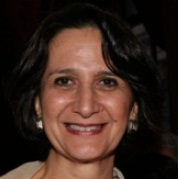
Hoda Elsadda is Professor of English and Comparative Literature at Cairo University. She previously held a Chair in the Study of the Contemporary Arab World at Manchester University, and was Co-Director of the Centre for the Advanced Study of the Arab World in the UK. In 1992, she co-founded and co-edited Hagar, an interdisciplinary journal in women’s studies published in Arabic. In 1997, she co-founded and is currently Chairperson of the Board of Trustees of the Women and Memory Forum, a research organization which focuses on reading Arab cultural history from a gender-sensitive perspective. She is a member of the editorial board of the Journal of Middle East Women’s Studies JMEWS; member of the Advisory Board of the Durham Modern Languages Series; Associate Editor of the Online Edition of the Encyclopedia of Women in Muslim Cultures; member of the Board of Directors of The Global Fund for Women (2009); Consultant Editor of the Routledge Encyclopedia of Translation Studies, Second Edition, (2006-2009); member of the Advisory Board of al-Raida.
Research Projects: Blogging in Egypt and Palestine: The Creation of New Cultural Public Spheres, Gender and Nation in the Literature of the 1990s in Egypt
Link: www.wmf.org.eg
Selected Publications:
- 2012. Gender, Nation and the Arabic Novel: Egypt: 1892-2008. Edinburgh University Press and Syracuse University Press.
-2012 (edited with an introduction) al-Niswiyya wa al-Tarikh (Feminism and History), translated by Abir Abbas. Cairo, the Women and Memory Forum,
-2011 “Women’s Rights Activism in post-Jan25 Egypt: Combating the Shadow of the First Lady Syndrome,” in Middle East Law and Governance 3 (2011): 84-93.
-2011 “ A ‘phantom freedom in a phantom modernity’?: Protestant Missionaries, Domestic Ideology and Narratives of Modernity in an Arab Context,” in Rethinking History, 15:2 (June 2011): 209-228.
2010 (edited with an introduction) ‘Intaj al-Ma’rifa ‘an al-‘Alam al-‘Arabi (Mapping the Production of Knowledge on the Arab World). Proceedings of a conference held in Cairo in July 2007. Cairo, the
Supreme Council of Culture.
-2010 “Arab Women Bloggers: The Emergence of Literary Counterpublics.” In Middle East Journal of Culture and Communication, 3:3 (2010) pp. 312-332.
- 2010. “Dialogue Section: The Arab Feminist Research and Activism: Bridging the Gap between the Theoretical and Practical,” in Feminist Theory 11:2 (August 2010) pp.121-127.
* “Egypt,” Arab Women Writers: A Critical Reference Guide 1873-1999. Edited Radwa Ashour, Ferial Ghazoul and Hasna Mekdashi, trans. By Mandy McClure. Cairo and New York, The American University Press, 2008. The article was first published in Arabic in 2004 as “Al-Kitaba al-`Ibda’iyya lil Nisa’ fi Misr” (Women’s Creative Writing in Egypt) in Thakira lil Mustaqbal: Mawsu’at al-Mar’a al-`Arabiyya (The
Memory of the Future: An Encyclopaedia of Arab Women’s Writings). Cairo, Nour and The Supreme Council of Culture, pp.7-59.
* Imaging the ‘New Man’: Gender and Nation in Arab Literary Narratives in the Early Twentieth Century, in Journal of Middle East Women’s Studies 3: 2, pp. 31-55, Spring 2007.
* Gendered Citizenship: Discourses on Domesticity in the Second Half of the Nineteenth Century, in Hawwa: Journal of Women of the Middle East and the Islamic World 4:1 pp.1-28, 2006.
* Discourses on Women’s Biographies and Cultural Identity: Twentieth Century Representations of the Life of `Aisha Bint Abi Bakr, in Feminist Studies, 27:1 (Spring), pp.37-64, 2001
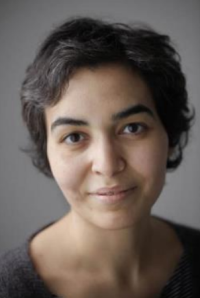
NADIA FADIL
Nadia Fadil works as an Associate Professor at the IMMRC (Interculturalism, Migration and Minorities Research Centre) at the University of Leuven. After having obtained a PhD at this same institute, she has been affiliated as a Postdoctoral Jean Monnet Research Fellow at the European University Institute (2008-2009), a Visiting Fellow at the University of California Berkeley (2011- 2012), a Fulbright Visiting Fellow at Columbia University (2018) and an FWO Postdoctoral fellow at the KU Leuven (2009-2012). Her work centers on Islam in Europe (taking Brussels as ethnographic site), both as a lived tradition as well as an object of regulation. She draws on this empirical question to reflect on a vast set of theoretical issues such as subjectivity and power, ethical selfhood, postcoloniality, governmentality, race and secularism. Her most recent publications 5 include Secular Bodies, Affects and Emotions. European configurations (with Monique Scheer and Birgitte Scheplern Johansen, Bloomsbury 2019) and Radicalization in Belgium and the Netherlands. Critical perspectives on Violence and Security (with Martijn de Koning and Francesco Ragazzi, IB Tauris 2019). She has also been active as a columnist and writer in the Belgian press and is a board member of a few organizations working on migration, multiculturalism and social inequality in Brussels.
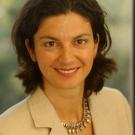
SARAH GUALTIERI
University of Southern California
Sarah Gualtieri is Associate Professor in the Departments of History and American Studies and Ethnicity at the University of Southern California. She is a scholar of the modern Middle East whose work focuses on questions of race, gender, and migration. Her book "Between Arab and White" (University of California Press, 2009) examines the history of Arab racial formation in the United States with a particular focus on the problematic of “whiteness.” Specifically, the work explores how Arabs came to be officially classified as white by the U.S. government, and how different Arab groups interpreted, accepted, or contested this racial classification over the course of the 20th century. Gualtieri is now working on a project entitled "The Lebanese in Los Angeles: Migration and Transnationalism in a Multi-racial Landscape," which has received funding from the American Council of Learned Societies and USC's Advancing Scholarship in the Humanities and Social Sciences Fellowship. At USC, Prof. Gualtieri teaches undergraduate courses on Women and Revolution in the Middle East, Arabs in America, the Modern Middle East, and a graduate seminar in Critical Studies of Whiteness. She served for two years as Faculty Advisor to the Middle East Studies Program at USC.
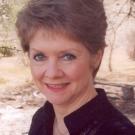
The Australian National University
Virginia Matheson Hooker is Professor Emeritus in the Department of Political & Social Change, College of Asia and the Pacific, at The Australian National University. She retired as Professor of Indonesian and Malay in the Faculty of Asian Studies at the Australian National University in January 2007. Her research has focused on Islam in Southeast Asia, literature and social change in Malaysia and Indonesia, and Indonesian political culture. Her most recent book, Voices of Islam in Southeast Asia, co-edited with Dr Greg Fealy, is an award-winning sourcebook on contemporary Islam in Southeast Asia. She has organized international conferences on Islam in Southeast Asia (1993 and 2000) with the proceedings of the second published in 2004 as Islamic Perspectives on the New Millenium (co-edited with Amin Saikal). She has contributed eight articles to the benchmark Encyclopedia of Islam (E.J. Brill, Leiden) as well as to Malaysian encyclopedias. She has been a member of Humanities committees of the Australian Research Council and participated in a number of reviews of Asian Studies in Australia. She is known for her contribution to the development of Asian Studies, especially studies of Indonesia, in Australia. Since 2003, she has coordinated a special Muslim Leaders Exchange program between Indonesia and Australia funded by the Australia Indonesia Institute, Department of Foreign Affairs and Trade. She has been awarded major grants to provide graduate research training programmes for academic staff of Indonesian regional Islamic universities. She has been a member of the Board of the Australia Indonesia Institute and former member of the Foreign Affairs Council of the Department of Foreign Affairs and Trade (2000-2003). She was elected a Fellow of the Australian Academy of the Humanities in 2003. She is an Associate of the Centre for Islamic Law and Society, Melbourne Law School, University of Melbourne, a member of the Board of the Aceh Research Training Institute, a member of the editorial board of the online journal Inside Indonesia, Vice-President and Board member of The Association for the Publication of Indonesian and Malaysian Studies Inc., which publishes the journal Review of Indonesian and Malaysian Affairs, and she serves on the international boards of the Bulletin of the School of Oriental & African Studies, University of London, and Studia Islamika, Indonesian Journal for Islamic Studies.
Selected Publications:
Hooker, Virginia. "Shaping modern Muslim women." Inside Indonesia: 103 January-March 2011. Web.
"Lines of Meaning: Three calligraphic paintings by Didin Sirojuddin." Suhuf: Vol.4, No.2, 2011, 315-339.
Culture and Society in New Order Indonesia. Editor and contributor, Kuala Lumpur: Oxford University Press, 1993, 293 pp. Reprinted in paperback, 1995.
Writing a New Society: Social Change through the Novel in Malay. Allen & Unwin: Sydney/University of Hawaii Press/KITLV, Leiden, 2000, 492pp. [Awarded 'Outstanding Academic Title' status by Choice (American Library Association)]. A Short History of Malaysia: Linking East and West. Allen & Unwin: St Leonards 2003. 333 pp. Malaysia: Islam, Society and Politics. Editor (with Norani Othman) and contributor. Singapore: Institute of Southeast Asian Studies, 2003. Islamic Perspectives on the New Millennium. Editor (with Amin Saikal) and contributor. Singapore: Institue of Southeast Asian Studies, 2004. Voices of Islam in Southeast Asia: A Contemporary Sourcebook. Editor and contributor with Greg Fealy. Singapore: Institue of Southeast Asian Studies, 2006. Reprinted 2007. [Awarded 'Outstanding Academic Title' status by Choice (American Library Association)].
The Precious Gift: Tuhfat al-Nafis. Editor with B.W. Andaya. Kuala Lumpur: Oxford University Press, 1982 [Selected by the American Council of Learned Societies for digitization as part of the 'ACLS History E-Book Project.'] Online at www.humanitiesebook.org
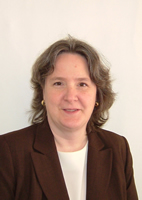
Independent Scholar
Alice Horner is a cultural anthropologist who received her Ph.D. from the University of California, Berkeley with specializations in African Studies, art and folklore, religion, and tourism. Her dissertation examined the concept of tradition and its cultural and political manifestations in Cameroon (West Africa). Horner has held positions at the Hearst Museum of Anthropology at Berkeley, the Culinary Institute of America, and the State University of New York, New Paltz. She has published in the Annals of Tourism Research, the Journal of American Folklore, and Visual Anthropology as well as contributing several entries to the Encyclopedia of Women and Islamic Cultures. Alice Horner is currently affiliated with the Department of Anthropology of the University of California, Davis as a Research Associate and is conducting historical research on Muslim women in the African diaspora. Dr. Horner lives in Albany, NY.
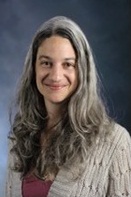
AMIRA JAMARKANI
Amira Jarmakani is an Associate Professor of Women's Studies at Georgia State University. She is the author of Imagining Arab Womanhood: The Cultural Mythology of Veils, Harems, and Belly Dancers in the U.S. (New York: Palgrave Macmillan 2008), which won the NWSA Gloria Anzaldúa 2008 book prize. She works in the fields of Women’s and Gender Studies, Arab American Studies, and Cultural Studies, and she is currently at work on a project about the popularity of the “sheikh” hero in mass-market romance novels, tentatively titled “’To Catch a Sheik’ in the War on Terror: Reading the Desert Romance.”
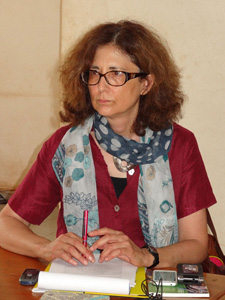
Rosa de Jorio is associate professor of anthropology at the University of North Florida. Her research interests include gender, Islam and the public sphere, the politics of culture, the anthropology of the state and transnationalism. De Jorio has published several articles and book chapters and guest-edited two special journal issues for Polar: The Political and Legal Anthropology Review and Africa Today. Her book titled National Heritage and Public Culture in Mali is forthcoming with the University of Illinois Press.
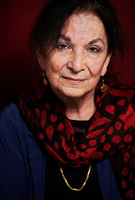
ANNELIES MOORS
Annelies Moors is Professor of Contemporary Muslim Societies at the Department of Anthropology, University of Amsterdam. She studied Arabic at the University of Damascus and Arabic and anthropology at the University of Amsterdam. She has done extensive fieldwork in Palestine (Jabal al-Nar), in Yemen, and in the Netherlands, and has published widely on gender, nation, and religion in fields such as Muslim family law, wearing gold, the visual media, migrant domestic labor, Islamic fashion and anti-fashion, face-veiling, and Islamic marriages. From 2001-2008 she has been the Amsterdam ISIM chair, where she directed the program on Muslim cultural politics. Currently, she is the PI of an NWO grant on ‘Muslim Activism’, and an ERC advanced grant on ‘Problematizing “Muslim marriages”: Ambiguities and Contestations’, which investigates the relationship between public debates and everyday life.
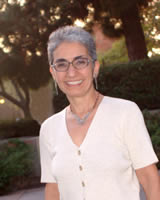
Born in Iran, Afsaneh Najmabadi came to Radcliffe College from Tehran University in 1966. With initial B.A. (Radcliffe 1968) and M.A. (Harvard 1970) degrees in physics, she later pursued social studies, combining academic interests with her engagement in social activism, first in the U.S. and then in Iran. She completed her Ph.D. (1984) in Sociology at the University of Manchester (U.K.).
She has recently completed a manuscript Women with Mustaches and Men without Beards: Gender and Sexual Anxieties of Iranian Modernity (University of California Press, 2005), a study of cultural transformations in 19th-century Iran centered on reconfigurations of gender and sexuality, and is working on two new projects, “How anAqabecame an Agha: women’s sociality and sexuality in Qajar Iran,” and "Genealogies of Iranian Feminism." Najmabadi's previous publications in English include The Story of Daughters of Quchan: Gender and National Memory in Iranian History (Syracuse University Press, 1998), and Women Autobiographies in Contemporary Iran, editor and contributor (Harvard University Press, 1991).
She has been a fellow at Institute for Advanced Study, Princeton (1994-95), Harvard Divinity School, Women's Studies in Religion Program (1988-1989), Pembroke Center for Teaching and Research on Women, Brown University (1988-1989), and Nemazee Fellow at the Center for Middle Eastern Studies, Harvard University (1984-85). After nine years at the Department of Women's Studies, Barnard College, in July 2001 Najmabdi joined Harvard University as Professor of History and of Studies of Women, Gender, and Sexuality. She currently chairs the Committee on Degrees in Studies of Women, Gender, and Sexuality.
Dr. Afsaneh Najmabadi at Harvard University
*Photo of Afsaneh Najmabadi by Shahla Bebe
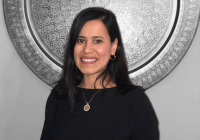
Dana M. Olwan
EWIC Online Editor
Dana M. Olwan is Associate Professor in the Department of Women’s and Gender Studies at Syracuse University. She is also affiliated faculty in the Middle East Studies Program, Native American and Indigenous Studies Program, and LGBT Studies Program at Syracuse University. Her work is located at the nexus of feminist theorizations of gender violence, transnational solidarities, and critical feminist pedagogies. She is the recipient of a Mellon Emerging Faculty Leader Award from the Institute of Citizens and Scholars, a Future Minority Studies postdoctoral fellowship, and a Palestinian American Research Council grant. Her work has appeared in Signs: Journal of Women in Culture and Society, Feminist Formations, the Journal of Settler Colonial Studies, American Quarterly, and Feral Feminisms. She is co-editor with Margaret A. Pappano of Muslim Mothering: Local and Global Histories, Theories, and Practices (Demeter Press, 2016). Her first book Gender Violence and The Transnational Politics of the Honor Crime was published by Ohio State University Press in 2021. She is currently working on a new project that is centered on marriage and divorce laws and citizenship practices in the Arab world, with a specific focus on Jordan and women’s access to personal status rights. She is co-editor (with Chandra Talpade Mohanty) of Reimagining Comparative Feminist Studies book series from Palgrave Macmillan. She is also Associate Editor of the Americas for the Encyclopedia of Muslim Women and Cultures (published by Brill). She teaches courses on transnational feminism, feminist solidarity, and gender politics in the Middle East and North Africa.
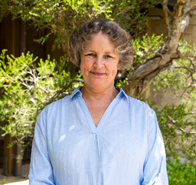
LYN PARKER
The University of Western Australia
Professor Lyn Parker is a social and cultural anthropologist in the School of Social Science at The University of Western Australia. She has specialized in Indonesia, and has conducted fieldwork in various parts of Indonesia, including Bali and West Sumatra. Her research has mainly focussed on development, gender relations, the anthropology of education, youth, multicultural education and, more recently, environmental education. Her first book was From Subjects to Citizens: Balinese Villagers in the Indonesian Nation-State (2003); other books include The Agency of Women in Asia (2005) and her most recent book, Adolescents in Contemporary Indonesia (with Pam Nilan, 2013). Her research has been funded by a succession of large grants from the Australia Research Council. She teaches in Anthropology and Asian Studies at undergraduate level, and social theory and gender in development at Honours and Masters level. She has won awards for Research Supervision, and currently supervises 11 Ph.D. student.
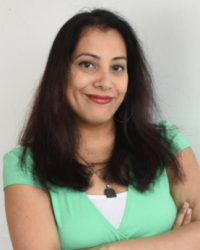
SHAHEEN PASHA
Shaheen Pasha is an assistant teaching professor at Penn State University, focused on mass incarceration and prison education. Prior to joining Penn State, Shaheen was an assistant professor at the University of Massachusetts, Amherst, where she launched a successful, immersive explanatory journalism class at the Hampshire County Jail, bringing incarcerated students and journalism students at UMass together. She was a recipient of the 2019 SAJA Excellence in Journalism Award for Nonfiction Writing (About South Asia or South Asian Diaspora). Shaheen was awarded the Knight Nieman Visiting Fellowship to expand her work, teaching journalism behind bars. She is also the recipient of a Fulbright Specialist designation to advise in journalism curriculum internationally. In addition, Shaheen is a veteran journalist with 20 years of experience in the field. She worked as an international correspondent, covering legal issues and Islamic finance for Thomson Reuters in Dubai. She was also a staff writer for CNNMoney in New York, where she covered legal issues, the Enron trial and the Supreme Court. She started her career at Dow Jones Newswires where she had a daily column in the 3 Wall Street Journal and appeared as a correspondent for CNBC Asia, covering international stock action. She continues to write for publications such as Dallas Morning News, Narratively and Bloomberg Law. Her essay, “The Color of Being Muslim,” was published in the Seal Press anthology Burn It Down: Women Writing About Anger. Her chapter “American Apocalypse: Portrayals of Islam and Judaism in the Post-9/11 Electronic Church,” was published in Praeger’s The Electronic Church in the Digital Age: Cultural Impacts of Evangelical Mass Media. She is also the co-editor of the anthology, Mirror on the Veil: A Collection of Personal Essays on Hijab and Veiling and co-author of the recent report #Islamophobia: Stoking Fear and Prejudice in the 2018 Midterms, published by the Social Science Research Council.
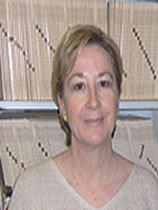
Julie Peteet is a faculty member and Chair of the Department of Anthropology at the University of Louisville, Kentucky. She has degrees in Anthropology from the University of California, Santa Barbara, the American University of Beirut, and Wayne State University, Michigan. One of Dr. Peteet's main research interests is the political anthropology of the Middle East, where she lived for ten years and also where she conducted her dissertation research. Dr. Peteet also works on refugee studies and Palestine, the focus of her most recent book, Landscape of Hope and Despair: Palestinian Refugee Camps (University of Pennsylvania Press, 2005). This book is based on ethnographic fieldwork and examines the relationship between space, place, and identity in a refugee camp. Dr. Peteet has also published Gender in Crisis: Women and the Palestinian Resistance Movement (Columbia University Press, 1991). Her current research is on the policy of closure and the wall in the occupied Palestinian territories and is focused on spatial strategies of colonial rule. Her work has been funded by Fulbright, Mellon, the Social Science Research Council, the Wenner-Gren Foundation for Anthropological Research, and the Palestinian American Research Center. Her work has been published in American Ethnologist, Cultural Anthropology, Signs, Middle East Report, Cultural Survival, and Third World Quarterly, among others.
Dr. Peteet serves on the board of director of Kentucky Refugee Ministries and on the Middle East Committee of the American Friends Service Committee.
Dr. Julie Peteet at University of Louisville
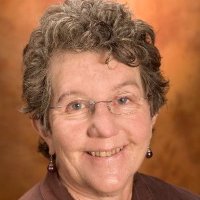
KATHRYN ROBINSON
Australian National University
Kathryn Robinson is Professor of Anthropology in the College of Asia and the pacific at The Australian National University in Canberra Australia. She has been researching in Indonesia since her doctoral research on the island of Sulawesi in 1977-9. Her particular research interests cover Islamic cultures in eastern Indonesia; gender relations in Indonesia, including a particular focus on Islam; and issues of citizenship and identity. Her principal research site has been the mining town of Sorowako in South Sulawesi province, but she has been involved in research, consulting and teaching across the archipelago. Her most recent research project, funded by the Australian Research Council was ‘Being Muslim in Eastern Indonesia’ which involved nine researchers (most of them Indonesian scholars) undertaking studies of local Islamic practices. From 1996 to 2012 she was editor of The Asia Pacific Journal of Anthropology.
Her publications include Gender Islam and Democracy in Indonesia (Routledge 2009), Asian and Pacific Cosmopolitans: Self and Subject in Motion (Palgrave 2007), Women in Indonesia: Gender Equity and Development (ed. With Sharon Bessell; ISEAS 2002), Stepchildren of Progress: The Political; Economy of Development in an Indonesian Mining Town (SUNY Press 1986), Islam and Gender Relations in Indonesia, with a Special Focus on Eastern Indonesia, special issue of Intersections: Gender and Sexuality in Asia and the Pacific , ed with EvaF. Nisa and Faried F Saenong (Issue 30 2102), ‘Citizenship, identity and difference in Indonesia’, in Special issue, Review of Indonesian and Malaysian Affairs Modes of Belonging: Citizenship Identity and Difference in Indonesia, (co-edited, Susanne Schröter and Birgit Braüechler) 48 (1), 2014., ‘Masculinity, sexuality and Islam: the gender politics of regime change in Indoesnai’ in Sex and sexualities in Contemporay Indoesia, LR Bennett and SG Davies (eds) (Routledge2015), Marriage Migration, Gender Transformations, and Family Values in the ‘Global Ecumene’, Gender, Place and Culture 14(4) (2007), ‘Muslim women’s political struggle for marriage law reform in contemporary Indonesia’ in Laws, Religions and Women’s Rights in the Asia-Pacific Region, A. Whiting and C Evans (eds) (Martinus Nijhoff, 2006), ‘Islam, gender and politics in Indonesia’ in Islamic Perspectives on the New Millennium , V. Hooker and A. Saikal (eds) (ISEAS 2004), ‘Gender, Islam and nationality: Indonesian domestic servants in the Middle East’, in Home and Hegemony: Domestic Service and Identity Politics in South and Southeast Asia, KM Adams and S Dickey (eds) (University of Michigan Press, 2000) and ‘Love and sex in an Indonesian mining town’ in Gender and Power in Affluent Asia, K. Sen and M. Stivens (eds) (Routledge 1998).
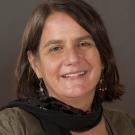
Therese Saliba is faculty of third world feminist studies at Evergreen State College, Washington, and former Fulbright scholar in Palestine (1995-96). She is co-editor of two collections, Gender, Politics and Islam (Univ. Chicago Press, 2002) and Intersections: Gender, Nation and Community in Arab Women's Novels (Syracuse University Press, 2002). Her essays on Arab and Palestinian feminisms, postcolonial literature, media representations, and Arab American experience have appeared in numerous journals and collections. Saliba is also former associate editor of Signs: Journal of Women in Culture and Society, and current associate editor of the online Brill Encyclopedia of Women and Islamic Cultures.
She works with a number of community-based organizations, including the Rachel Corrie Foundation for
Peace & Justice, the Arab American Community Coalition of Washington State, as well as regional and
national academic and community networks working on the Middle East and Arab/Muslim American
issues.

The Arab Council for the Social Sciences
Seteney Shami is founding Director-General of the Arab Council for the Social Sciences since 2012. She is an anthropologist from Jordan and obtained her BA from the American University of Beirut and her MA and PhD from the University of California, Berkeley. After establishing the first graduate department of anthropology at Yarmouk University, Jordan, she moved in 1996 to the regional office of the Population Council in Cairo as director of the Middle East Awards in Population and the Social Sciences (MEAwards). In July 1999, she joined the Social Science Research Council in New York (from which she is currently on leave) as program director for the program on the Middle East and North Africa (currently) and the program on Eurasia (until 2010) and the program on InterAsia (since 2008). She has been a visiting professor at University of California, Berkeley, Georgetown University, University of Chicago, Stockholm University, and the Swedish Collegium for Advanced Study in the Social Sciences (Uppsala). Her fieldwork has focused on Jordan, Egypt, Turkey, and the North Caucasus. Her research interests center on issues of ethnicity and nationalism in the context of globalization, urban politics and state-building strategies, and population displacement and transnational mobility. Publications include the co-authored book (with Mitchell Stevens and Cynthia Miller-Idriss) Seeing the World: How US Universities make Knowledge in a Global Era (Princeton University Press 2018); edited volumes Middle East Studies for the New Millennium: Infrastructures of Knowledge (co-edited with Cynthia Miller-Idriss, NYU Press 2016); Publics, Politics and Participation: Locating the Public Sphere in the Middle East and North Africa (SSRC Books and Columbia University Press, 2009), and “Occluding Difference: Ethnic Identity and the Shifting Zones of Theory on the Middle East and North Africa” (co-authored with Nefissa Naguib), in Anthropology of the Middle East and North Africa: Into the New Millennium, S. Slyomovics and S. Hafez, eds., Indiana University Press, 2013
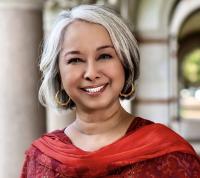
ELORA SHEHABUDDIN
EWIC Online Editor
Elora Shehabuddin is Associate Professor of Humanities and Political Science at Rice University. She received her A.B. in Social Studies from Harvard University and Ph.D. in Politics from Princeton University. She was Assistant Professor of Women's Studies and Political Science at the University of California, Irvine, before moving to Rice. Professor Shehabuddin is the author of two books, Reshaping the Holy: Democracy, Development, and Muslim Women in Bangladesh (Columbia University Press, 2008) and Empowering Rural Women: The Impact of Grameen Bank in Bangladesh (Grameen Bank, 1992). She has published articles in Modern Asian Studies, Signs: Journal of Women in Culture and Society, Journal of Women's History, Südasien-Chronik [South Asia Chronicle], Journal of Bangladesh Studies, and Asian Survey, as well as chapters in numerous edited volumes. She is an Associate Editor of the Encyclopedia of Women and Islamic Cultures (Brill) and a guest co-editor of a special issue of Feminist Economics on "Gender and Economics in Muslim Communities." Her current book project is a history of Muslim women, feminism, and global politics.Professor Shehabuddin has received many fellowships, including from the National Endowment for the Humanities, Woodrow Wilson Foundation, the American Association of University Women, the Social Science Research Council, the Andrew W. Mellon Foundation, and the U.S. Institute of Peace. She has been selected as a Research Associate in the Women's Studies in Religion Program at the Divinity School at Harvard University and as a Carnegie Scholar. Her doctoral dissertation was awarded the American Political Science Association's Aaron Wildavsky Dissertation Award for best dissertation in Religion and Politics. Professor Shehabuddin currently serves on the Advisory Committee of the Women's Studies in Religion Program at Harvard Divinity School and on Final Selection Committee of the Woodrow Wilson Foundation Women's Studies Fellowship.
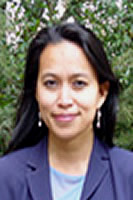
UC San Diego
Jacqueline Aquino Siapno is originally from Pangasinan, Philippines. She is the author of Gender, Islam, Nationalism and the State in Aceh: The Paradox of Power, Co-optation and Resistance (Routledge Curzon, 2002); Associate Editor of the Encyclopedia of Women and Islamic Cultures; and co-editor, Between Knowledge and Commitment: Post-Conflict Reconstruction and Peace-building in Regional Contexts (Osaka: Japan Center for Area Studies, 2004). She completed her Ph.D. at the University of California, Berkeley, in South and Southeast Asian Studies, in 1997, her undergraduate studies at Wellesley College, Massachusetts, and her M.A. at School of Oriental and African Studies at the University of London, both in Political Science. She has had teaching and research fellowship appointments at the Australian National University in Canberra, UC Berkeley, UC Riverside, and UC Irvine. In addition to her academic work, she has also worked with grassroots organizations, NGOs, and political parties in East Timor, Aceh, Indonesia and the Philippines. She has worked as a consultant, external evaluator, and trainer for UNDP, OXFAM, Concern-Worldwide, UNIFEM, and government departments in East Timor, in the areas of rural development and gender issues. She also lives in Dili, East Timor, where she teaches half of the year at Universidade da Paz (UNPAZ) and is Director of the International Studies Program at UNPAZ. She envisions her contribution to the field of Political Science and Asian Studies as that of producing critiques of conventional approaches to poverty assessment, governance, democratization, international security, international human rights, and international political economy from a gendered perspective and with subtle and sensitive attention to the politics of class, race, religion, rank, ethnicity, language and translation. Jacqueline also teaches in the Indonesian Studies program in the Melbourne Institute of Asian Languages and Societies. Jacqueline's research interests include art and politics in Southeast Asia, political performativity, women's labor and the economy, post-conflict reconstruction and development administration, women and public health issues, comparative studies of Muslim societies, and dance forms in Southeast Asia. She has conducted extensive fieldwork and published articles on Islam and social movements in Mindanao, the contradictions between feminism and nationalism in Aceh, East Timor, and the Philippines, state terror in Aceh, and other issues.
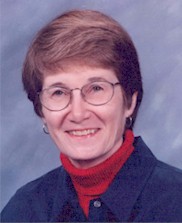
Hartford Seminary
Jane I. Smith is Professor of Islamic Studies and Co-Director of the Macdonald Center for Christian-Muslim Relations, at Hartford Seminary. She has done extensive work on the role and status of women in Islam, Muslim communities in America, historical relations between Christians and Muslims, and Christian theology in relation to Islam. Dr. Smith is co-editor of The Muslim World, a journal dedicated to the study of Islam and Christian-Muslim Relations; area editor for Brill’s Encyclopedia of Women in Islamic Cultures; and editor of the Islam section of The Encyclopedia of Women in World Religions. A member of the Commission on Interfaith Relations of the National Council of Churches of Christ, the United Church of Christ/Disciples of Christ Interfaith Consultation, she is a frequent participant in Christian-Muslim dialogue meetings in the United States and abroad. She teaches in the area of Christian-Muslim relations and interfaith dialogue, as well as courses in Islamic studies and comparative religion. She serves on the Board of Directors of the Connecticut Council for Interreligious Understanding, Inc.
Among Dr. Smith’s recent publications are Becoming American: Immigration and Religious Life in the United States, edited with John Esposito and Yvonne Haddad (Altamira Press, 2003); “Muslims as Partners in Interfaith Encounter: Models for Dialogue,” in Zion’s Herald (2003); “Sayyid Hossein Nasr and the Christian-Muslim Encounter,” in Beacon of Knowledge: A Tribute to Sayyid Hossein Nasr (Fons Vitae, 2003); The Islamic Understanding of Death and Resurrection, with Yvonne Haddad (Oxford University Press, 2003; reprint, translated into Indonesian); Visible and Invisible: Muslim Communities in the West, with Yvonne Haddad (AltaMira Press, 2002); “Balancing Divergence and Convergence, or Is God the Author of Confusion?” in A Faithful Presence: Essays for Kenneth Cragg (Melisende, 2003); “Thinking Globally about Islam,” in Global Religions (Oxford, 2002); “Women’s Issues in American Islam,” in Encyclopedia of Women and Religion in North America (Indiana University Press, 2004); “Women in Islam: New Images and Interpretations” in The Christian Century (February 2002); “Faith” and “Afterlife” in Encyclopedia of the Qur’an (Brill, 2002); “Wilfred Cantwell Smith: Understanding Worlds of Faith” in A Great Commission: Christian Hope and Religious Diversity (Oxford, 2000); Islam in America (Columbia University Press, 1999); “Islam and Christendom” in The Oxford History of Islam (Oxford, 1999).